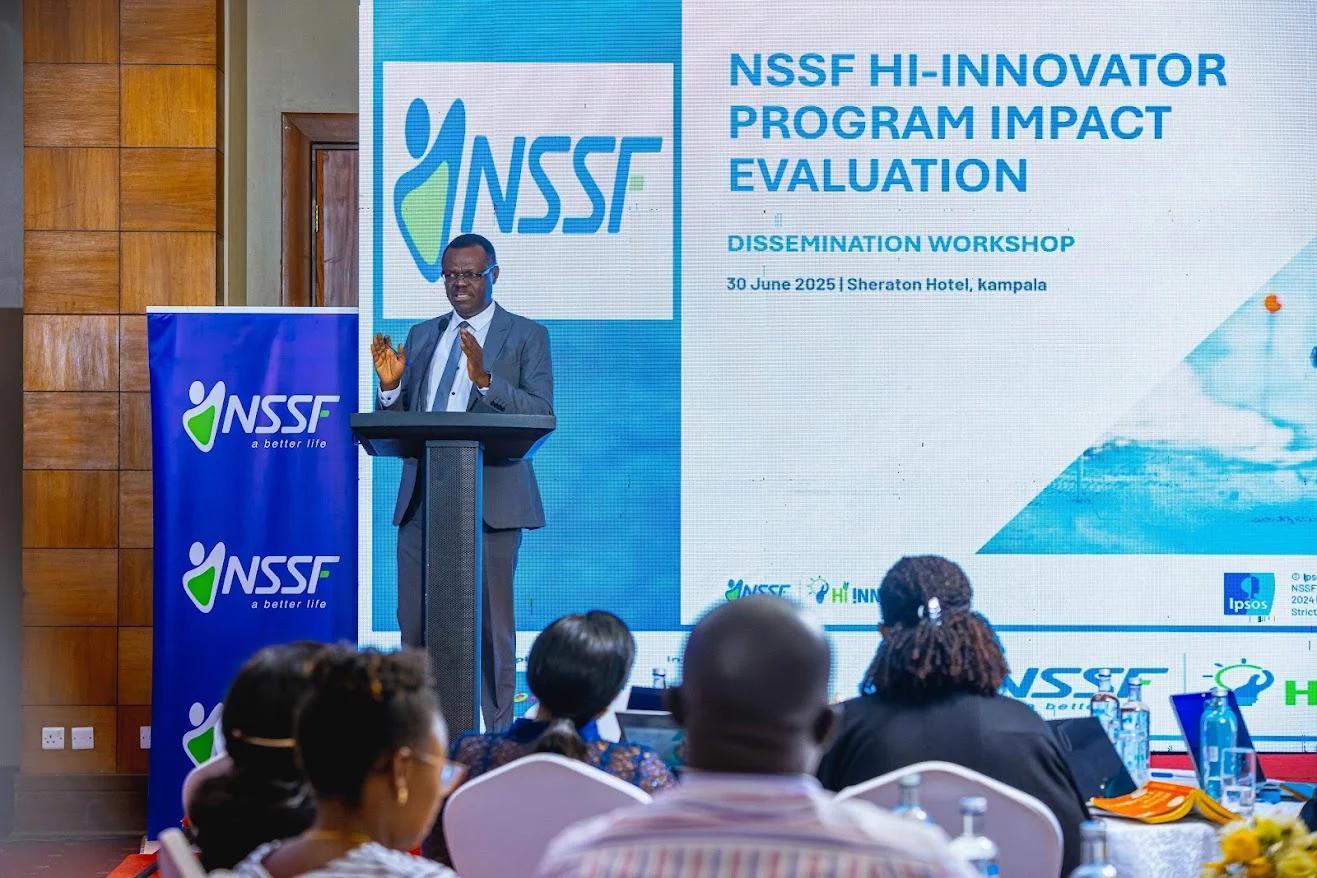Africa-Press – Uganda. In 2020, three companies with diverse backgrounds – National Social Security Fund (NSSF), Mastercard and Outbox – teamed up.
The plan? Create a setup that goes beyond funding entrepreneurs to cultivating a comprehensive entrepreneurial ecosystem.
The goal was bold: Create 132,000 jobs, train 75,000 entrepreneurs, and support 500 businesses across Uganda. Five years later, an evaluation by IPSOS notes, the initiative, which was later renamed Hi-Innovator Programme, has had a significant impact, exceeding targeted jobs by more than 50 percent.
Details indicate that a total of 202,323 jobs have been created, of which 38,563 are direct, while 163,760 are indirect.
Initially, the programme, implemented by Outbox, had been conceived as a pilot project to support 10 promising businesses.
But the nature of Uganda’s fragmented and inefficient startup ecosystem prompted Outbox to reach out to NSSF and Mastercard Foundation to collaborate on a broader and more scalable vision, anchored on impact, scalability, and profitability.
And for NSSF, it was hitting two birds with one stone – nurture a solid startup ecosystem, but also create a pool of members to pour into the Fund.
“Our contributors had plateaued, while claimants were rising fast. So, we said something strange: Let us create our members. That’s when we bought into Richard Zulu’s vision for powering startups and Mastercard Foundation’s dream of dignified work,” says NSSF managing director Patrick Ayota.
In investing in the initiative, NSSF had anticipated recruiting more than 500 members, but achieved 302, with total remittances of Shs 1.5 billion as of March 2025.
And for $5m (Shs17.9b), a return of Shs1.5b is a good addition and a promise of a better future.
“We didn’t just want to create businesses. We wanted to create members – contributors to Uganda’s growth story,” Ayota says.
Data indicates that NSSF and Mastercard invested $5m each, bringing the total investment to $10m in the five years.
In 2018, Outbox, led by Richard Zulu, with a modest seed budget of $200,000 (Shs717.9m) started a journey that has evolved into a game-changer for Uganda’s entrepreneurship landscape by creating quality jobs.
Two years into the start, precisely in 2020, more partners – NSSF and Mastercard – bought into the idea.
And IPSOS details show that among 248 youth employees surveyed, 83.5 percent reported job satisfaction, while 89 percent believed their roles had long-term stability.
IPSOS further indicates that 77.8 percent of surveyed employee reported income growth, and more than 96 percent felt respected and empowered in their positions.
The initiative largely focuses on youth, which Mastercard Foundation country programme head Meralyn Mungereza says: “Our collaboration with NSSF was designed to ensure that youth and women access not just jobs, but gainful work.”
IPSOS data shows that through the initiative, at least 27,075 have been filled by youth between the ages of 18 and 35, while 89,535 have been filled by women.
Sectors creating the most jobs
Agriculture dominates in terms of job creation, accounting for 148,200 indirect, 7,367 learner-generated, and 3,975 direct jobs.
It is followed by light manufacturing with a total of 9,711 jobs and the digital economy with 7,614 jobs. Trade and services contributed around 2,500.
Despite its success, the initiative has faced some obstacles, including delayed payments and narrow profit margins, low formalisation, unskilled labour and limited ability to offer competitive salaries.
These challenges call for ecosystem-level reforms in areas such as workforce training, access to capital, business registration support, and long-term mentorship.
For More News And Analysis About Uganda Follow Africa-Press






